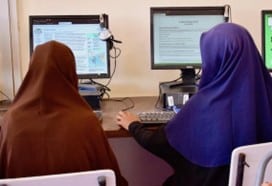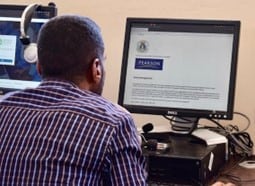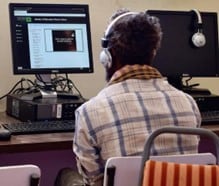
Camara Education
Transforming life chances in Africa with technology
During their visit, the WAGE group immersed themselves in the vibrant educational landscape of Tanzania, engaging directly with students and teachers. Their journey took them to several schools across the country, where they witnessed first-hand the impact of their support and shared valuable insights on the importance of girls’ education.
In Dar es Salaam, they visited Jamhuri Secondary School, Uhamiaji Secondary and Aboud Jumbe Secondary School, where students and staff warmly welcomed them. The exchange of experiences and perspectives was enriching, highlighting the transformative power of education in shaping young minds.
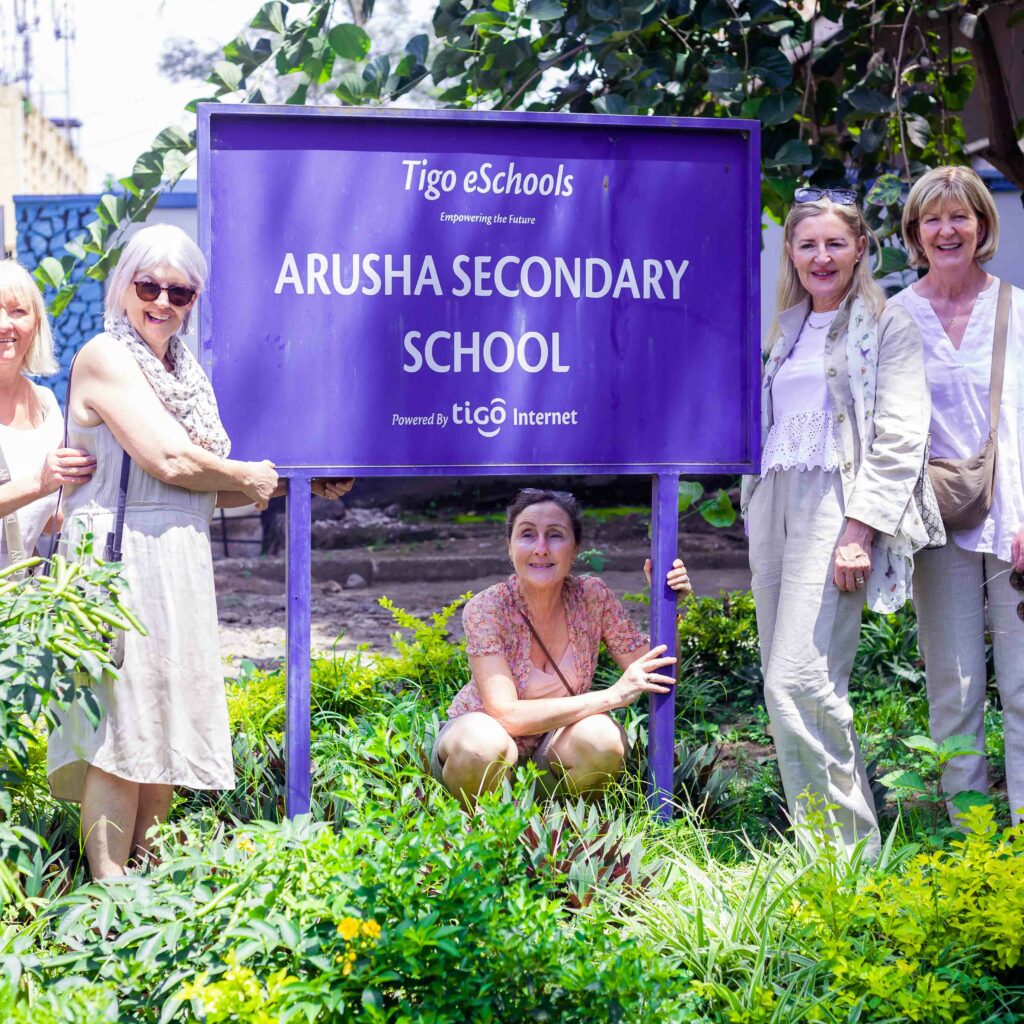
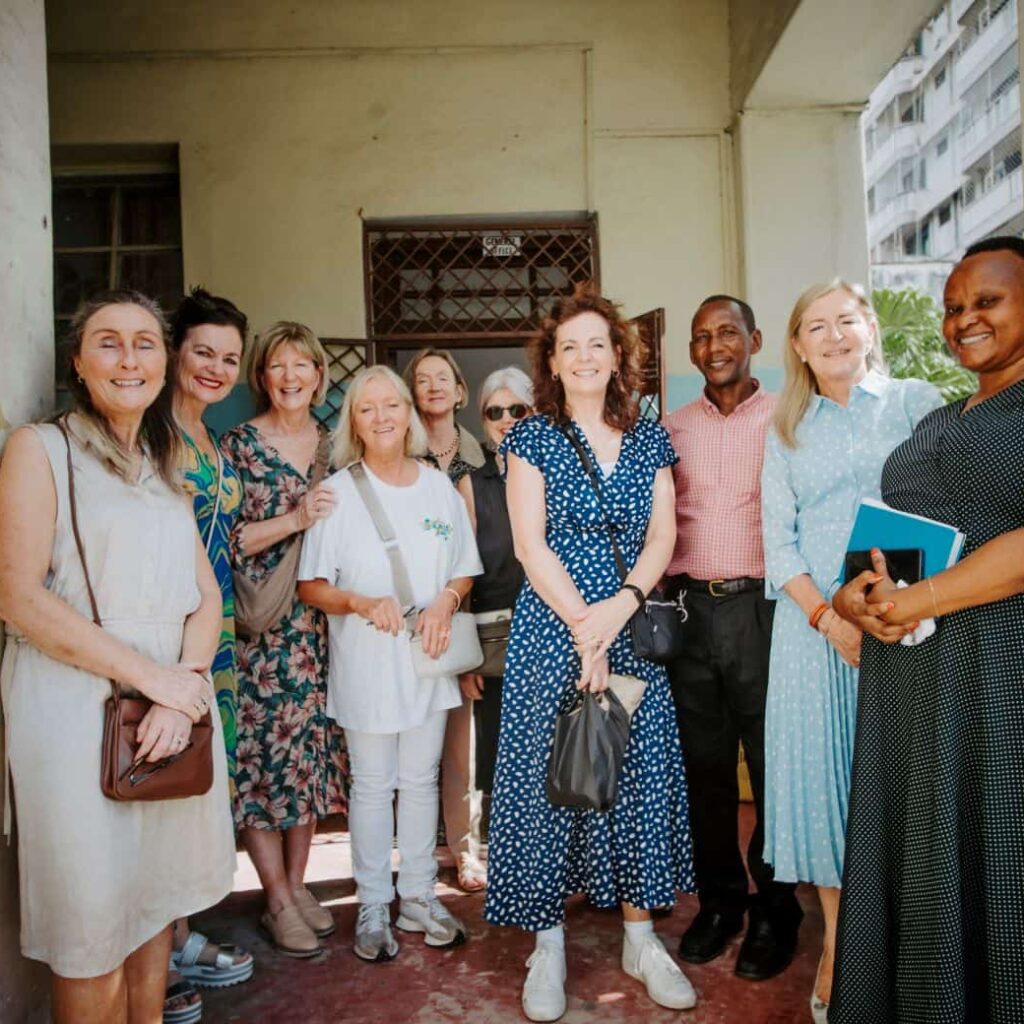
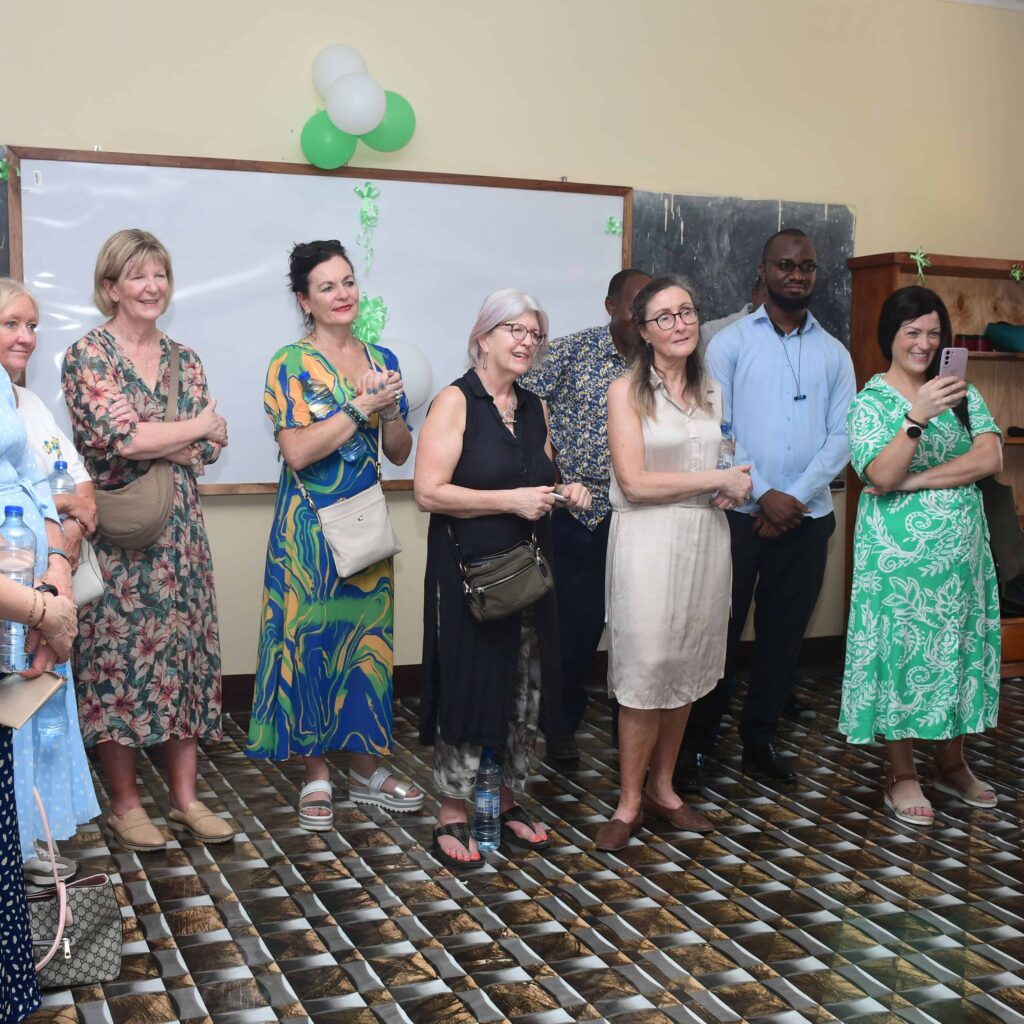
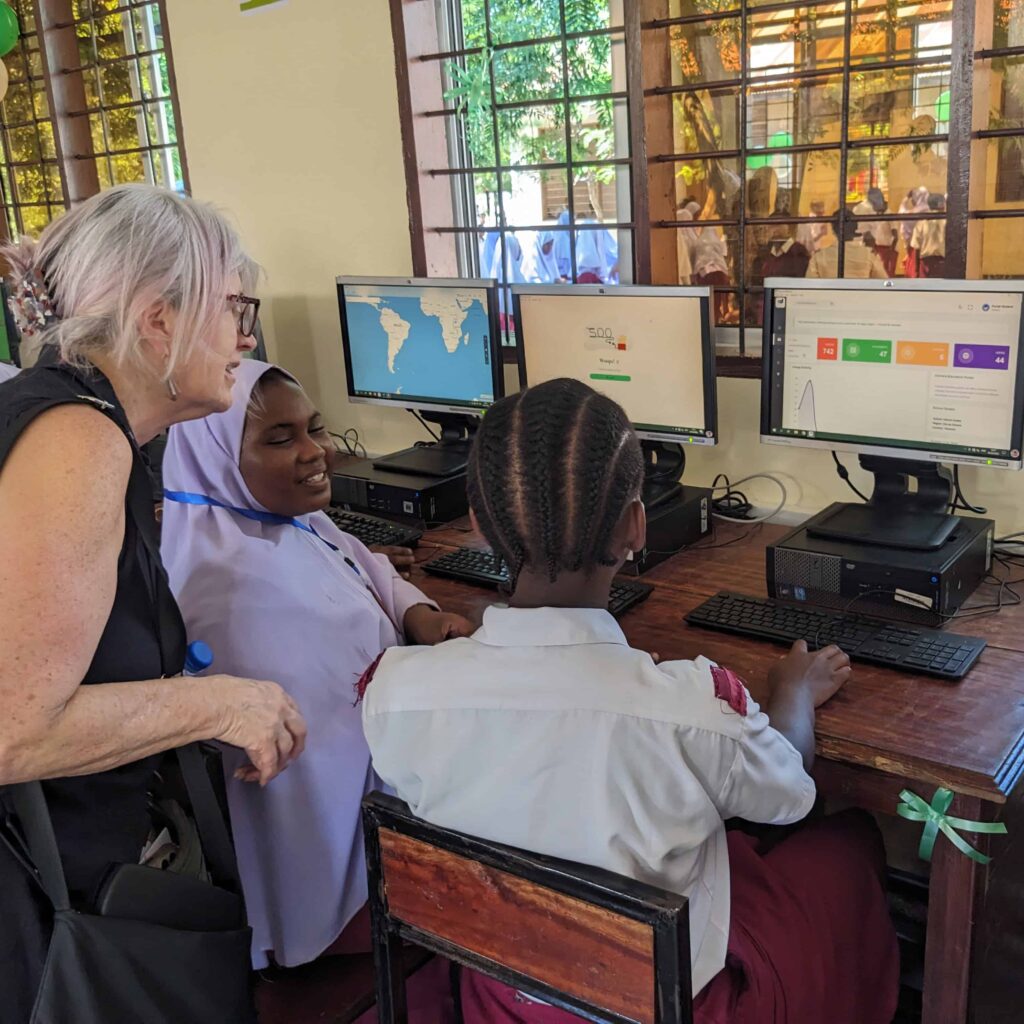
In Arusha, the WAGE group had a memorable experience at Arusha Secondary School, engaging in meaningful discussions with students about their educational journeys and aspirations. The interactions underscored the critical role of mentorship and support in empowering girls to fulfil their potential.
WAGE’s commitment to supporting girls’ education in Tanzania has been invaluable. Through their fundraising efforts, they have contributed to advancing educational opportunities in ten schools and their focus on girls’ education reflects a deep understanding of the systemic barriers that hinder girls’ access to quality education and the urgent need for collective action to address them.
As we reflect on the visit of WAGE we kindly invite other individuals to join this initiative and fund schools. We can assist with fundraising, and if you can visit us in Tanzania, our local team will help to organise the entire trip, including a rest and recreation trip to Ngorongoro, Serengeti, Mt Kilimanjaro or Zanzibar. Contact us at tanzania@camara.org.
Today, we shine a spotlight on some of the incredible women and girls teaching and studying science and technology with the help of Camara Education. Camara Education is not just transforming classrooms; it’s breaking gender stereotypes and ensuring that every girl has equal access to the tools of the future. Let’s honour the women & girls leading the charge, making education inclusive and accessible for all. Together, we are building a world where education knows no bounds.
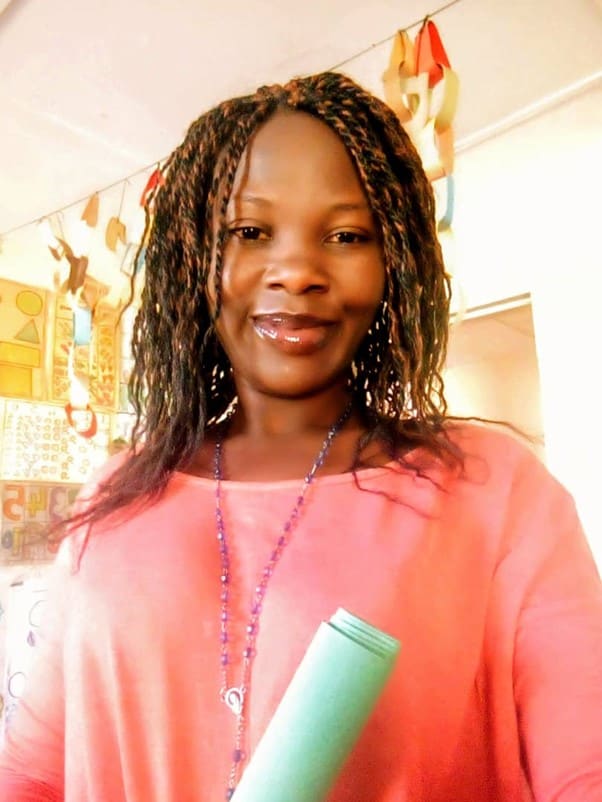
Kamara Nyirenda is a teacher at Shitima Secondary in Zambia who has recently undergone training on the computers in the lab installed at her school. She says “I have benefited as a teacher from the skills and knowledge imparted, and the learners will benefit as well and be able to move forward with technology. To me as a teacher from now onwards, no more using manual because my life has been made easy.”
Meanwhile in Ethiopia, Hanan Nasir is an ICT club member and student at Hayrenzi Secondary School.
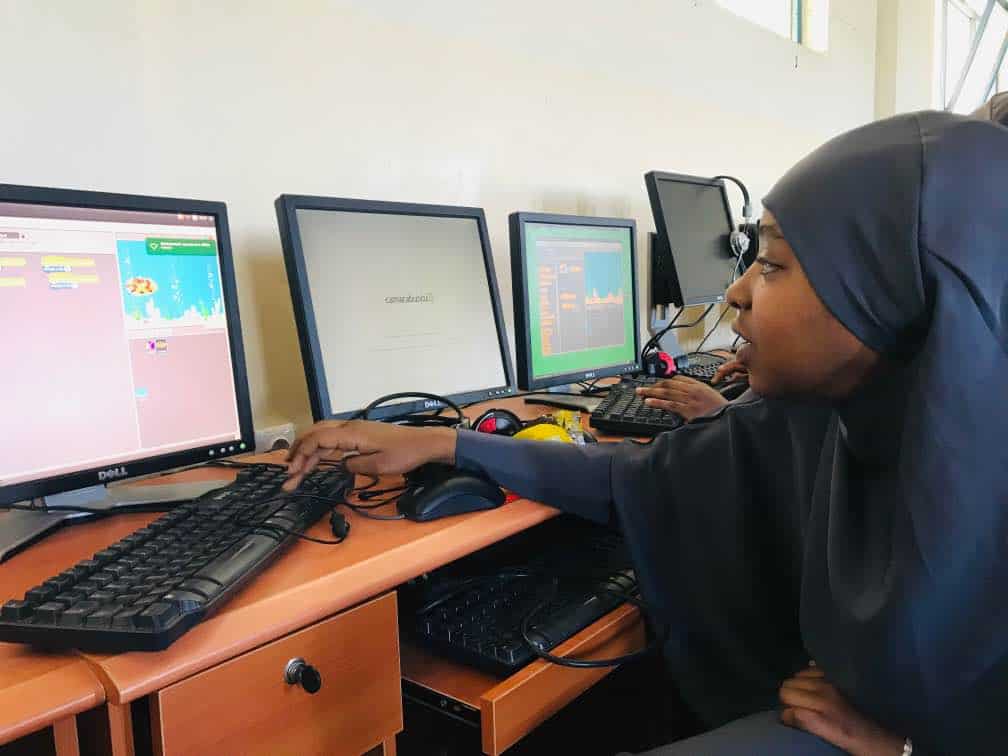
Hanan says “Since I started learning in this school I have been attending e-learning classes and I have been getting so many benefits by using these computers. I am a natural science student, and the main subjects are maths and physics. Now I am able to learn more by referring to different content and videos. The videos on physics subjects helped me a lot more than the lessons I take from the classroom. Not only for me but for the other students as well, especially for students who came from a very remote area, most of them don’t even know what a computer is. Now they can learn more about technology and use a computer and this is a big change for us. I have taken code training on Scratch from Camara and now have additional knowledge on coding. I want to become a software engineer and the basis for that is coding.”

Hewan, Yordanos, Feven and Rakeb are grade 11 students at Girls’ Cathedral School in Addis Ababa, Ethiopia. “We have formed an ICT Club and started to practice more on the computers. Without getting frustrated we can easily learn in a fun way. We are also motivating and following up with other students to use and learn more about advanced technology. We have improved our academics.”
And finally, a parent’s viewpoint. Amina Ali’s daughter attends Mille Secondary School in a rural region of Afar in northern Ethiopia. She says “Even seeing girls in school, let alone using technology, makes me very happy. We have an extremely distinctive society when it comes to raising girls in our area. The majority of girls were not permitted to attend school, were forced into arranged marriages, and were forced to miss school because they were menstruating. But things are progressively changing now, and it’s wonderful to see girls being given the chance to use technology to help their education and learn more about the outside world. I’ve seen how helpful computers are even now that our daughters are becoming more interested in the future thanks to the new PCs. I have observed how easy the Camara computers can be, even when used without a teacher’s assistance.”
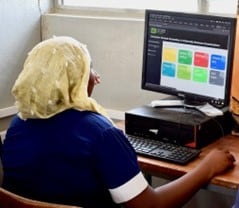
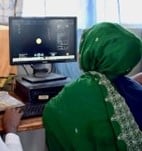
We recently organized a remarkable training workshop in Ethiopia, the first of its kind for our schools. In conjunction with Dr Solomon Gizaw, an Assistant Professor at the Department of Computer Science at Addis Ababa University, who trained at and retains links with the University of Limerick in Ireland, Train the Trainer workshops were held on October 9 and 10 at the Addis Ababa University 4 Kilo campus. 40 IT teachers from 20 Camara supported schools, as well as Camara volunteers and staff, participated in the training.
The workshop covered coding, concentrating on the free Scratch programming language, and Machine Learning, featuring TinyML. Dr Solomon and his colleague delivered the Machine Learning components and Camara’s head trainer delivered the Scratch sessions as part of our Africa Code Week initiative. The training was hands-on and engaging, and the teachers were very excited about it.
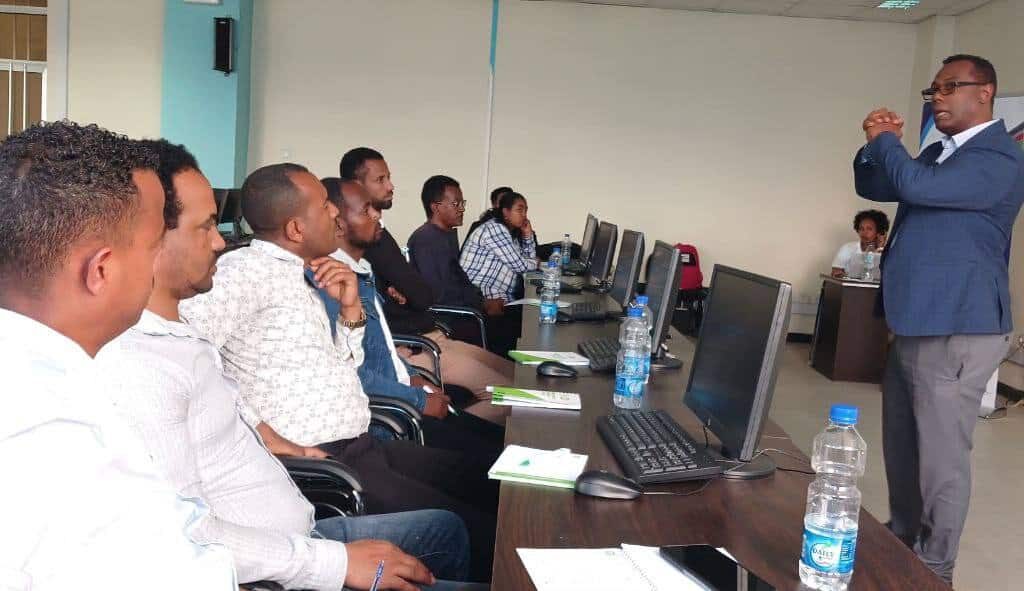
Almost all of the teachers who took part were new to TinyML, so the workshop covered everything from the basics to its potential applications in various sectors, including education. This initiative is just one of the ways in which Camara seeks to impact the country’s education sector and empower teachers and students with the knowledge and skills they need to effect change for the better.
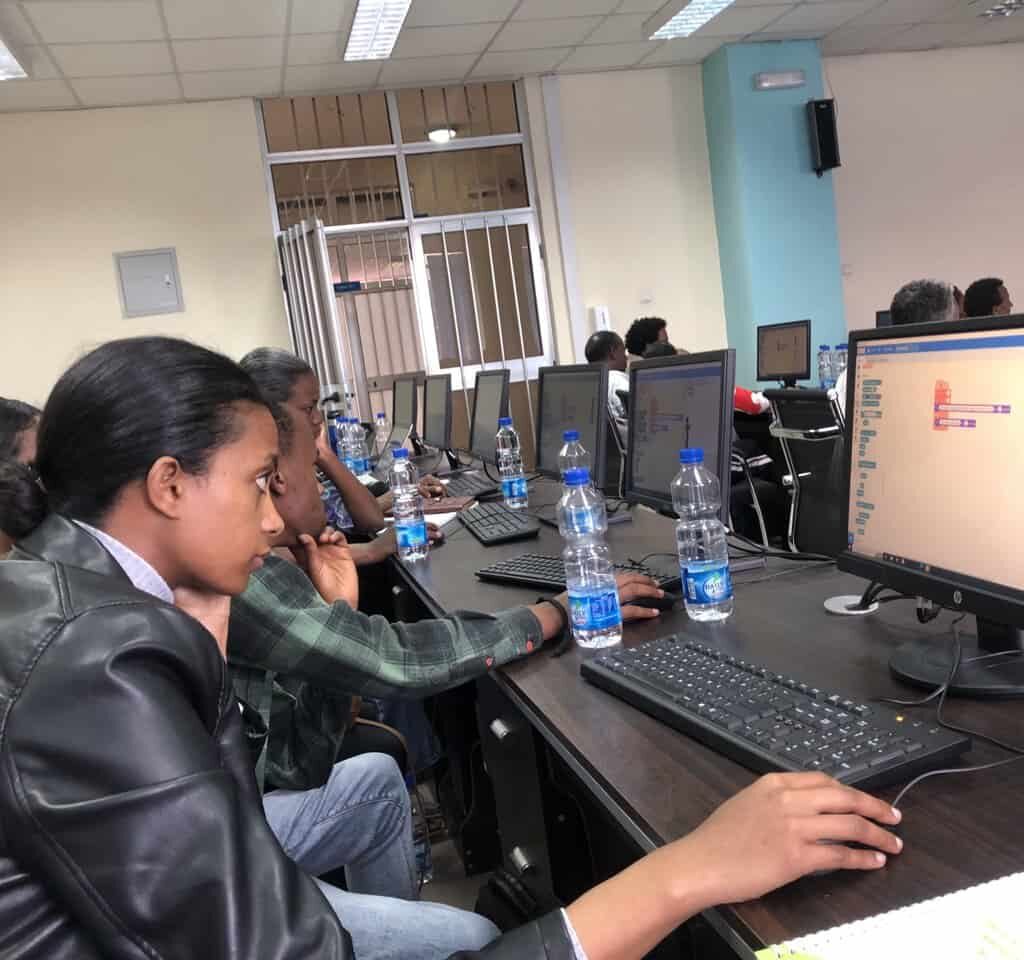
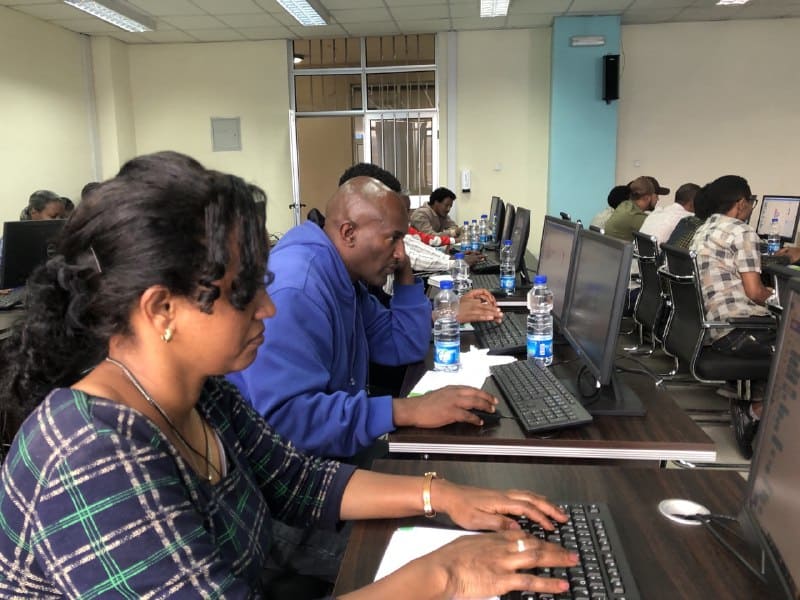
One of the teachers who took part in the October workshop was Mr. Hayleyesus, an IT teacher at Crosspoint School in Dukem, some 37km southeast of Addis Ababa. He wasted no time in passing on his enhanced coding skills to some of his students, who are preparing to take part in the 2023 AfriCAN Code Challenge. The AfriCAN Code Challenge is a coding contest open to 8-16-year-olds across Africa, in which they have to develop an original game using the Scratch programming language. Camara Ethiopia is the organiser of the ACC in Ethiopia.
These pictures show students at Crosspoint taking part in their own coding workshop. The eLearning centre at Crosspoint is sponsored by one of our local partners, Edify.
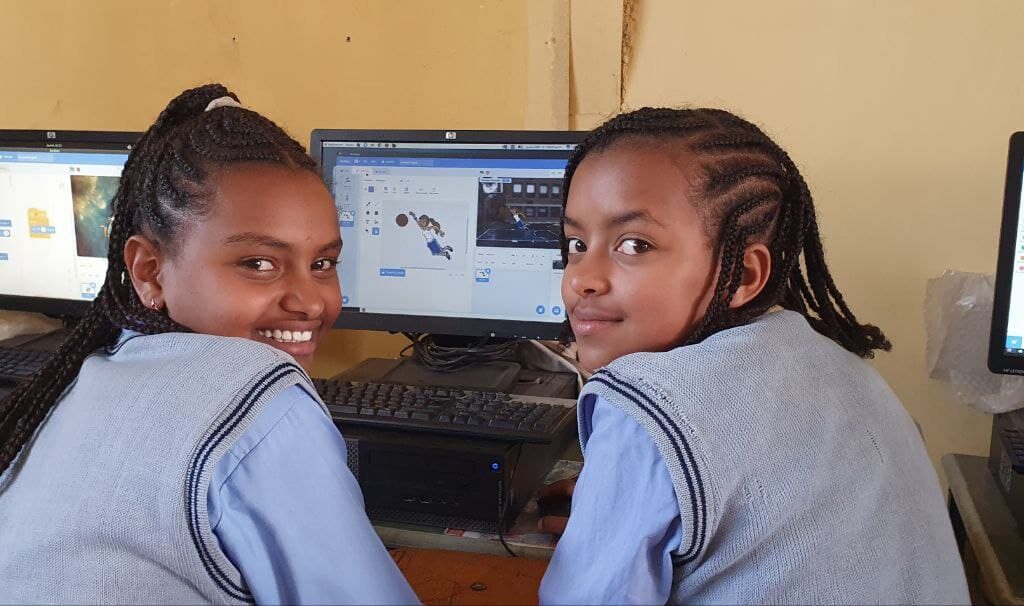
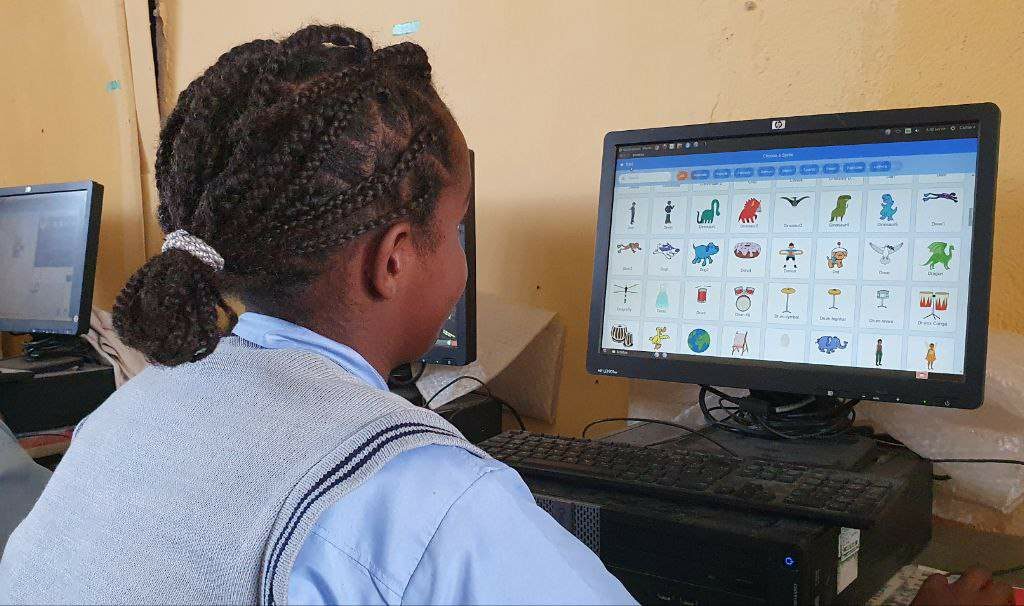
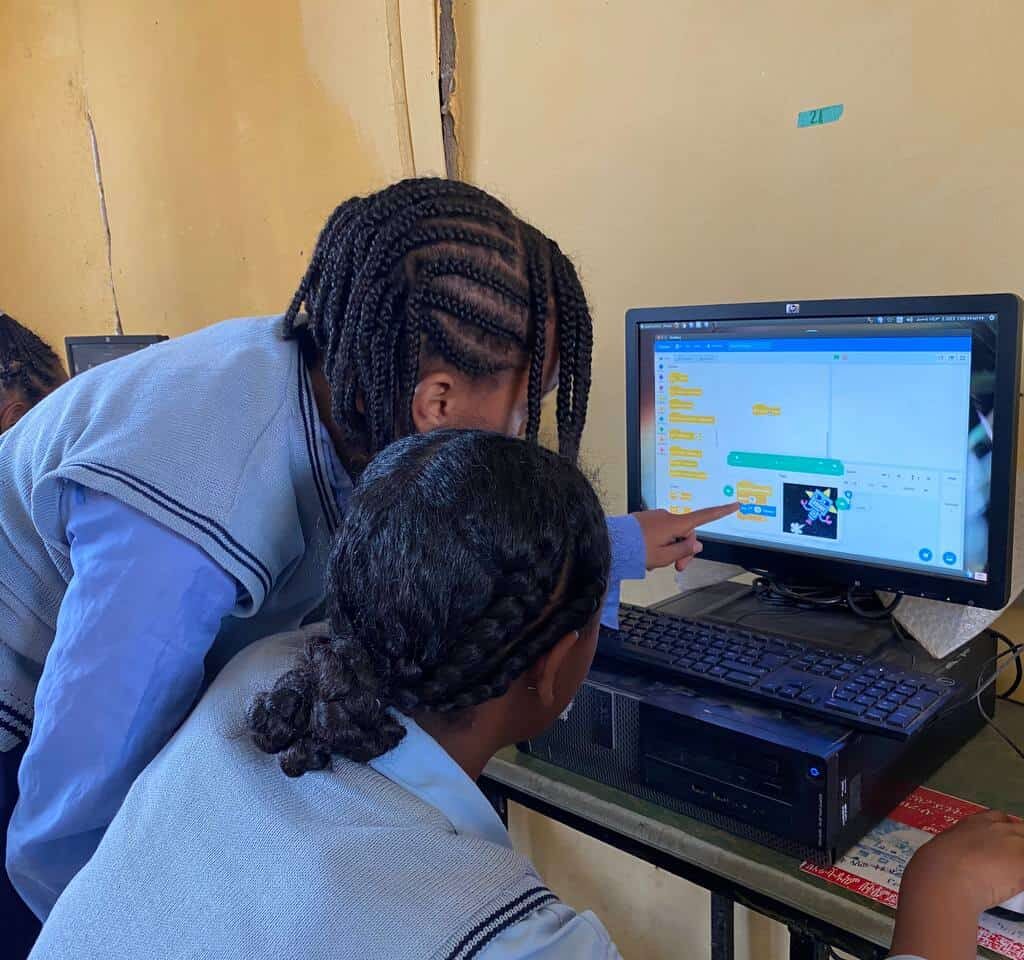
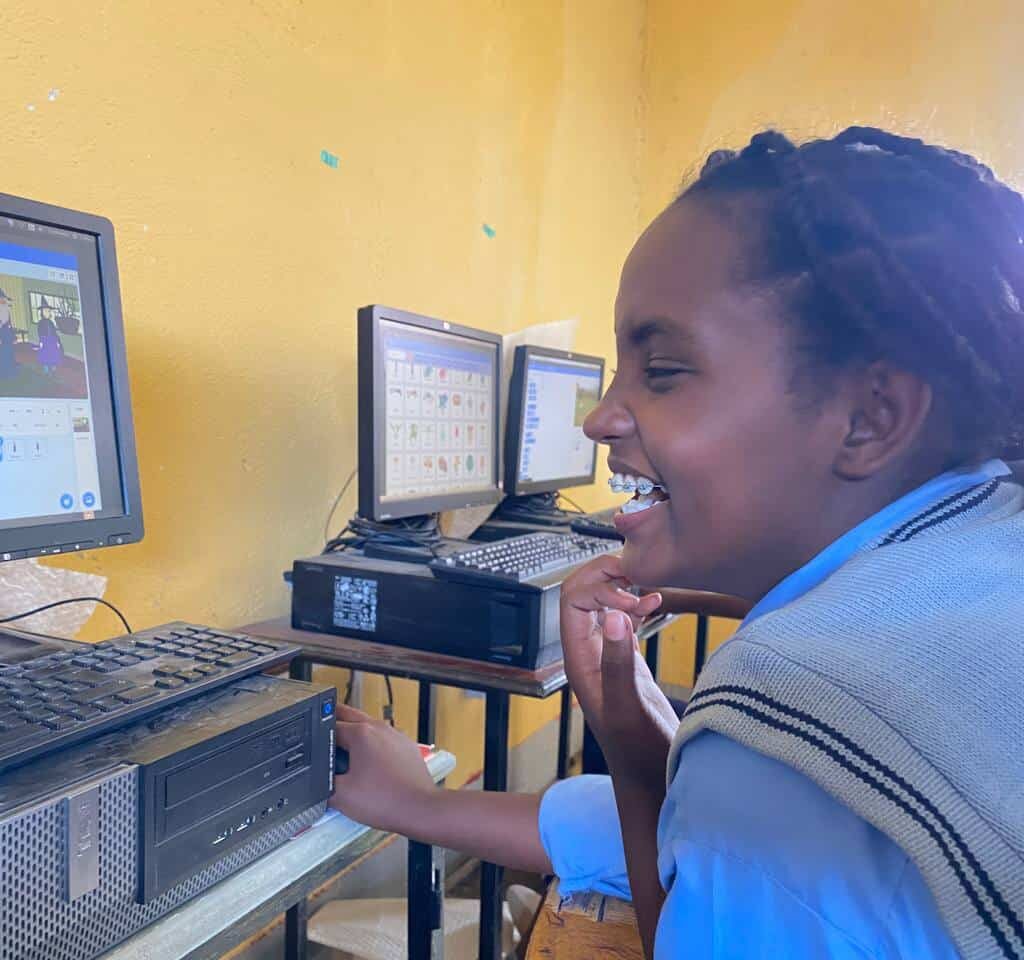
Some great news from our colleagues in Ethiopia, as our first rehabilitation project in the Tigray region following the conflict there has been completed. The fighting between Tigrayan forces and the Ethiopian government began in November 2020 and dragged on for more than two years – during which time around 85% of the 253 government high schools in the region suffered significant damage. Now, things are slowly returning to normal.
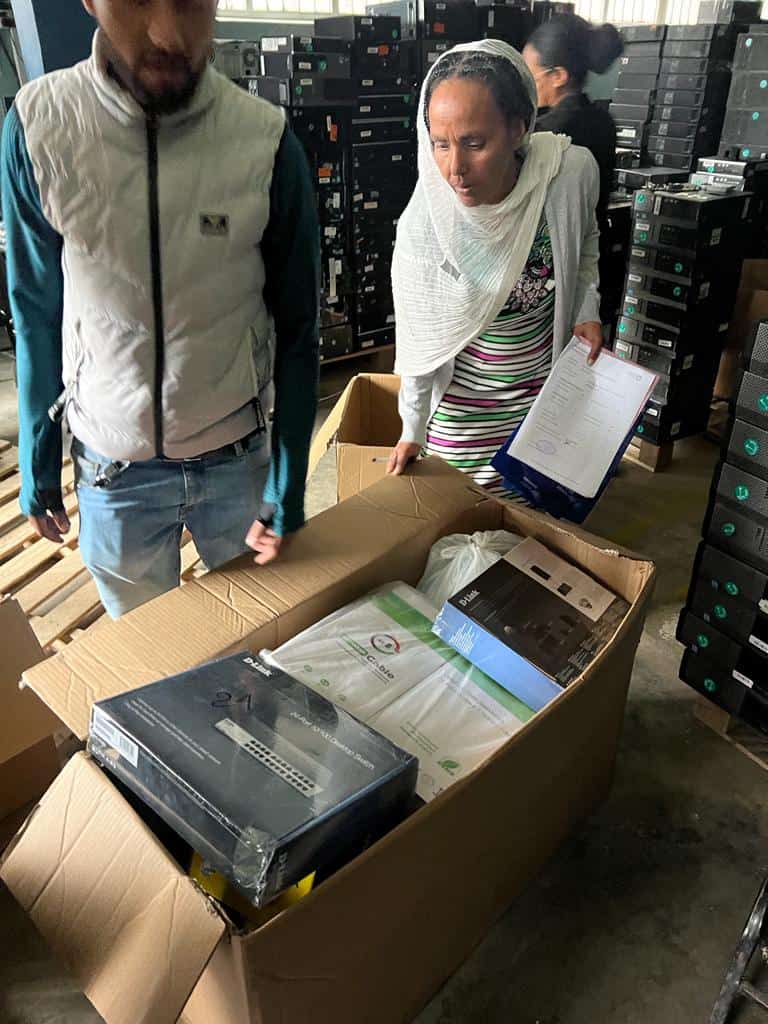
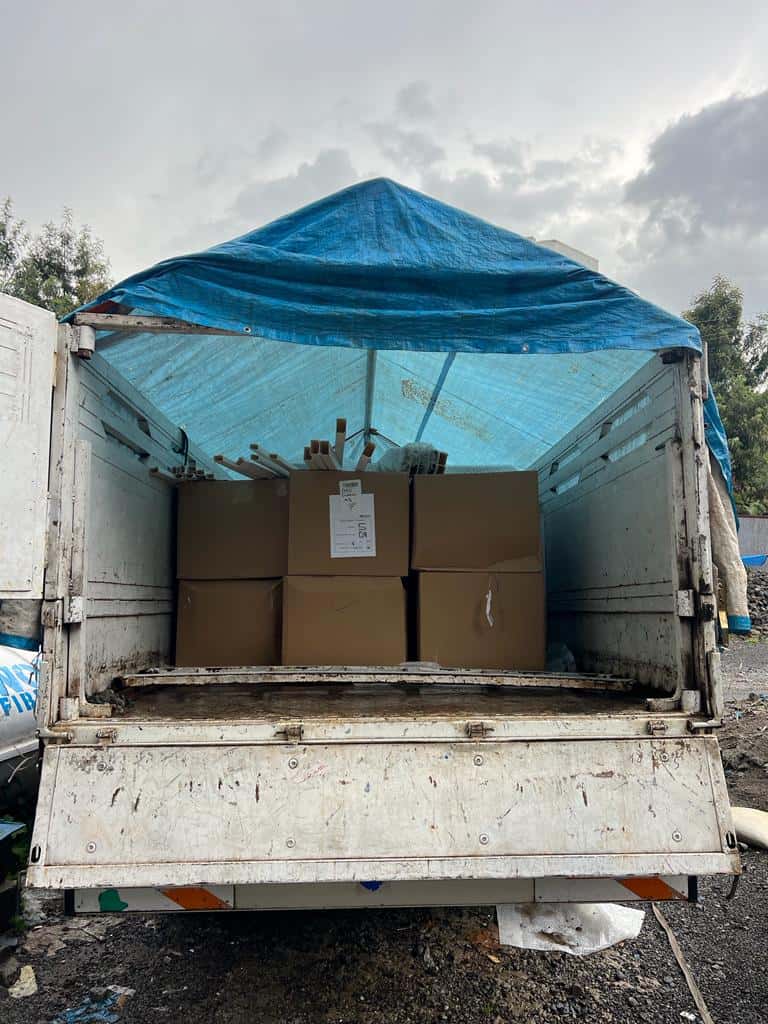
Having transported a lorry-load of computers north, the first of the new networked eLearning Centres was established at Kallamino High School in the Tigrayan capital, Mekele.
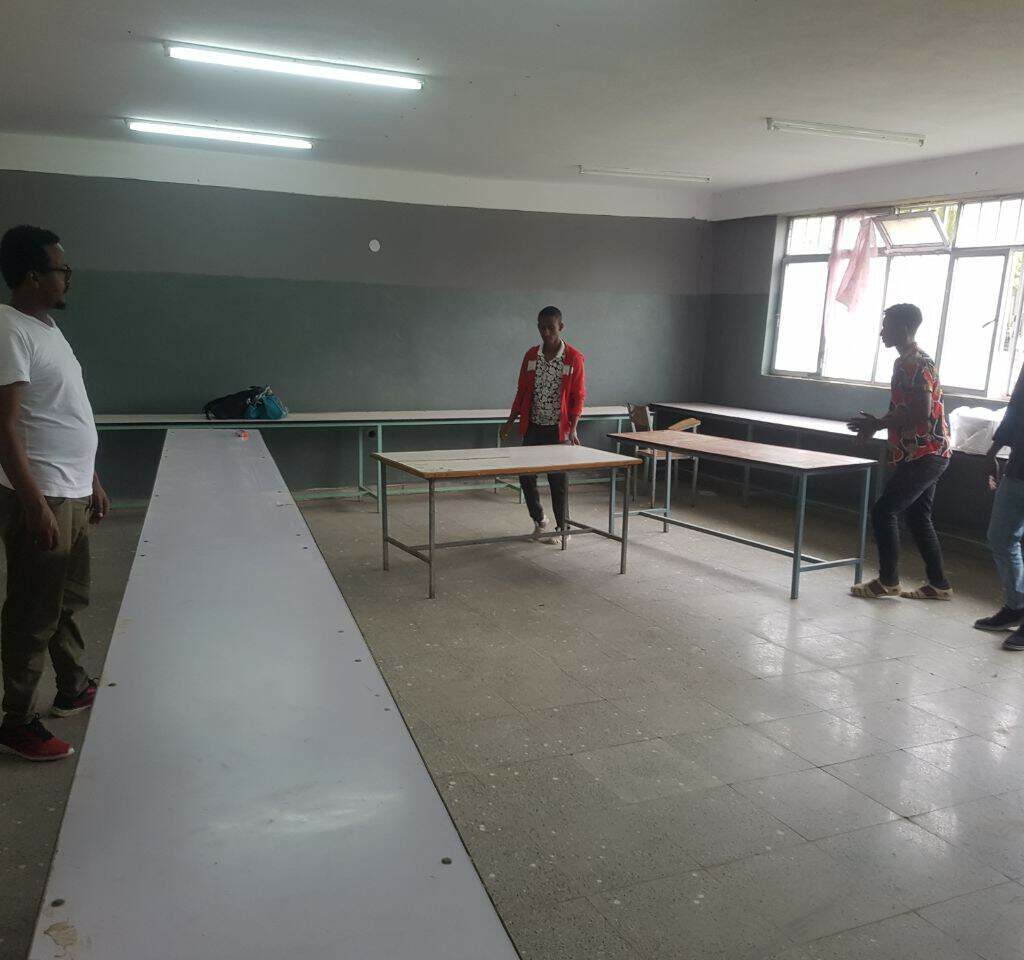
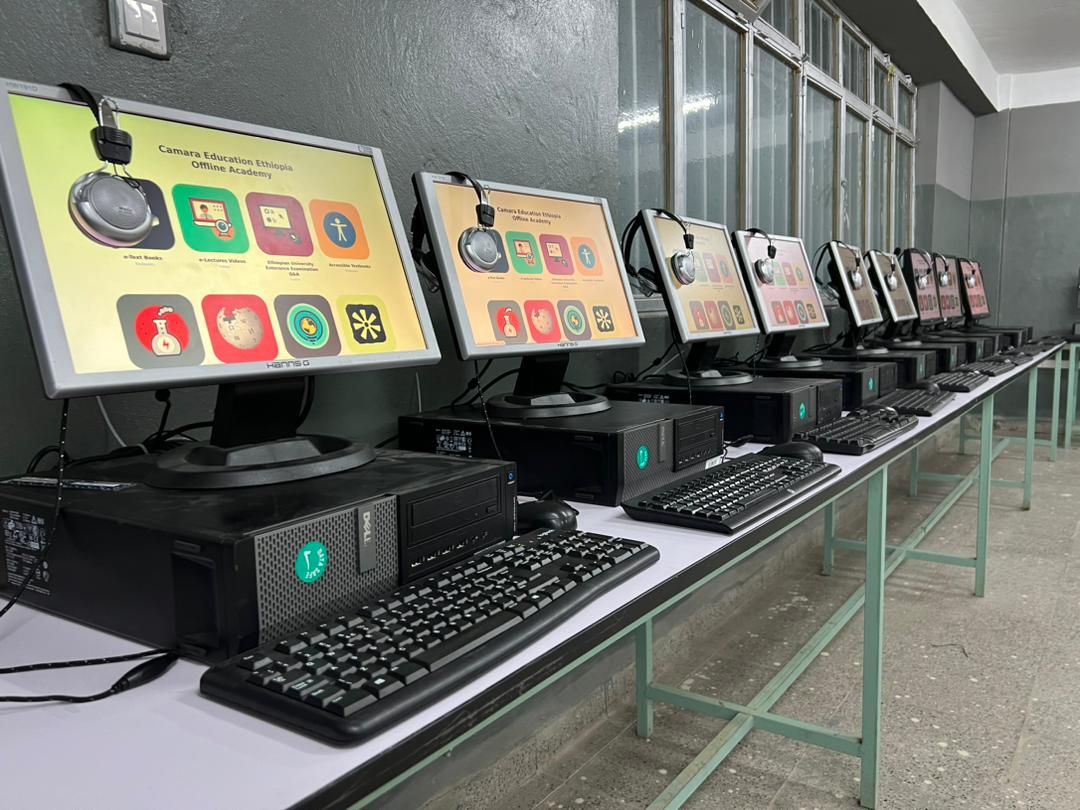
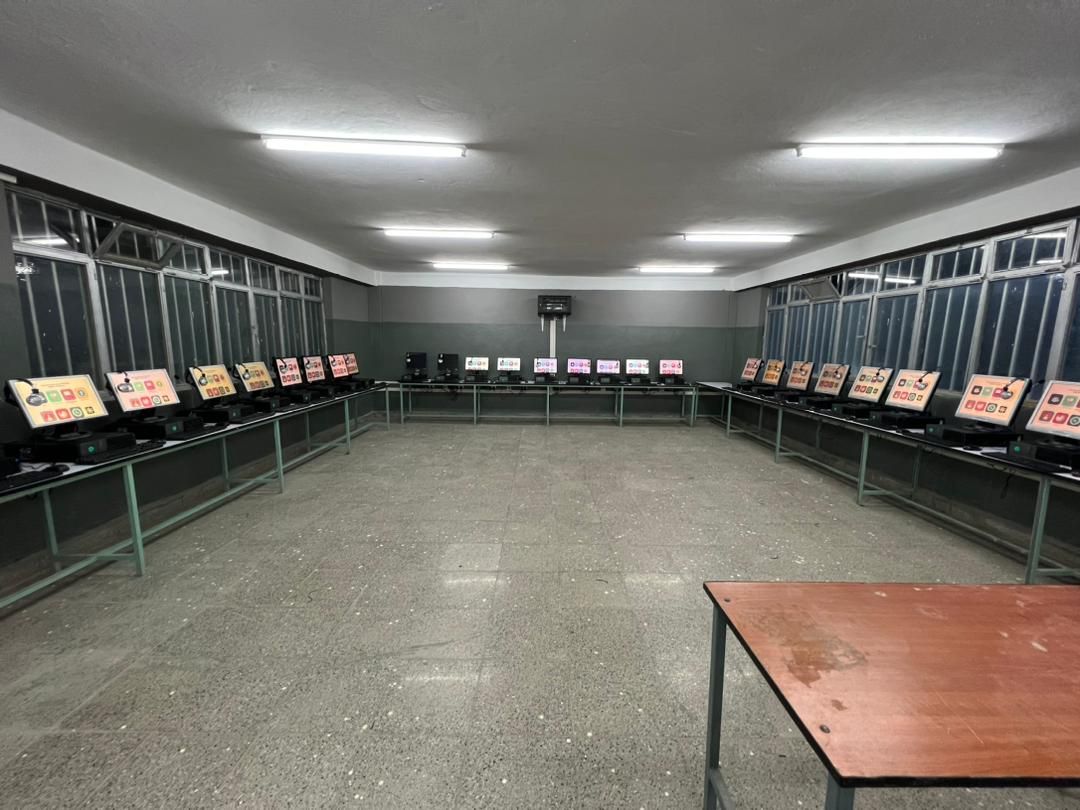
The school’s teachers were trained in the use of ICT in education with a special focus on encouraging girls’ active and continuing participation – a project in partnership with British Council Ethiopia.
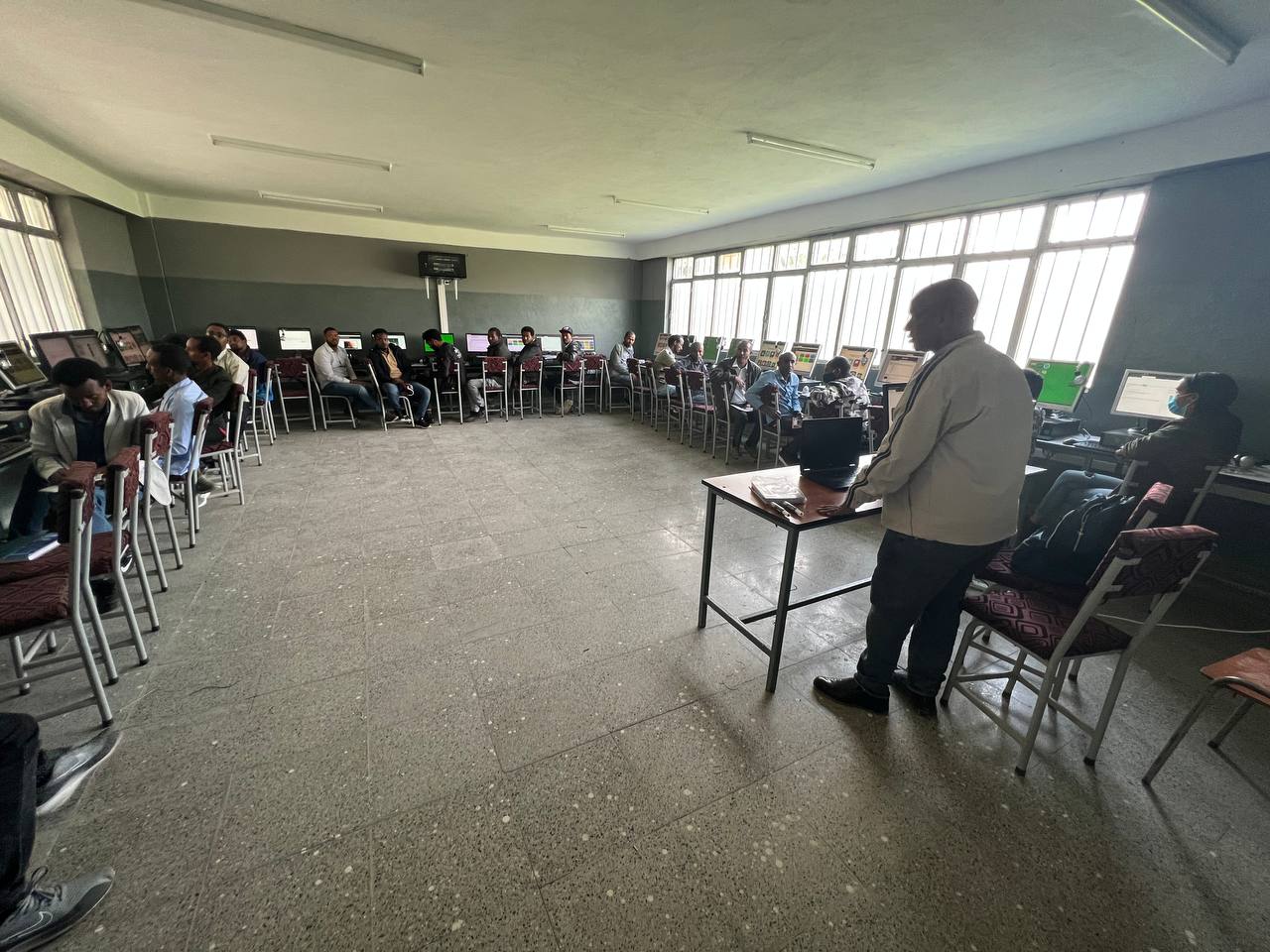
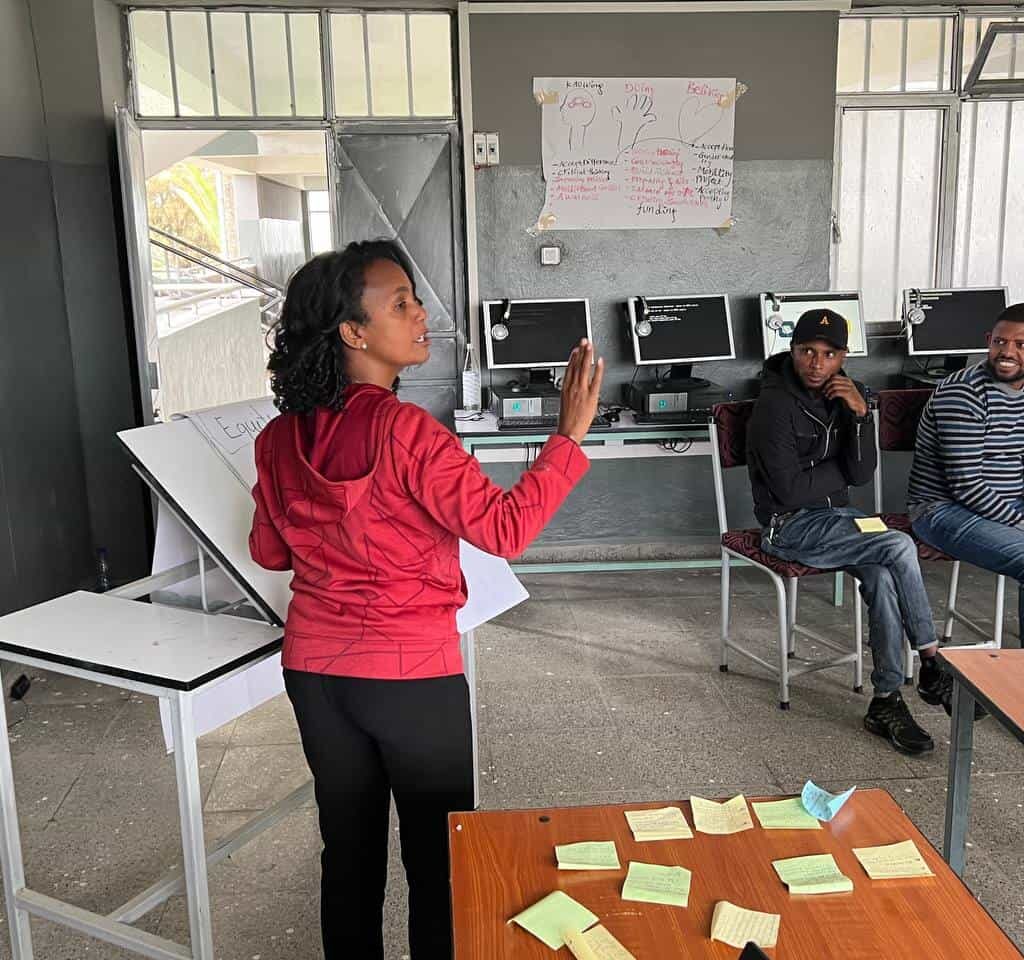
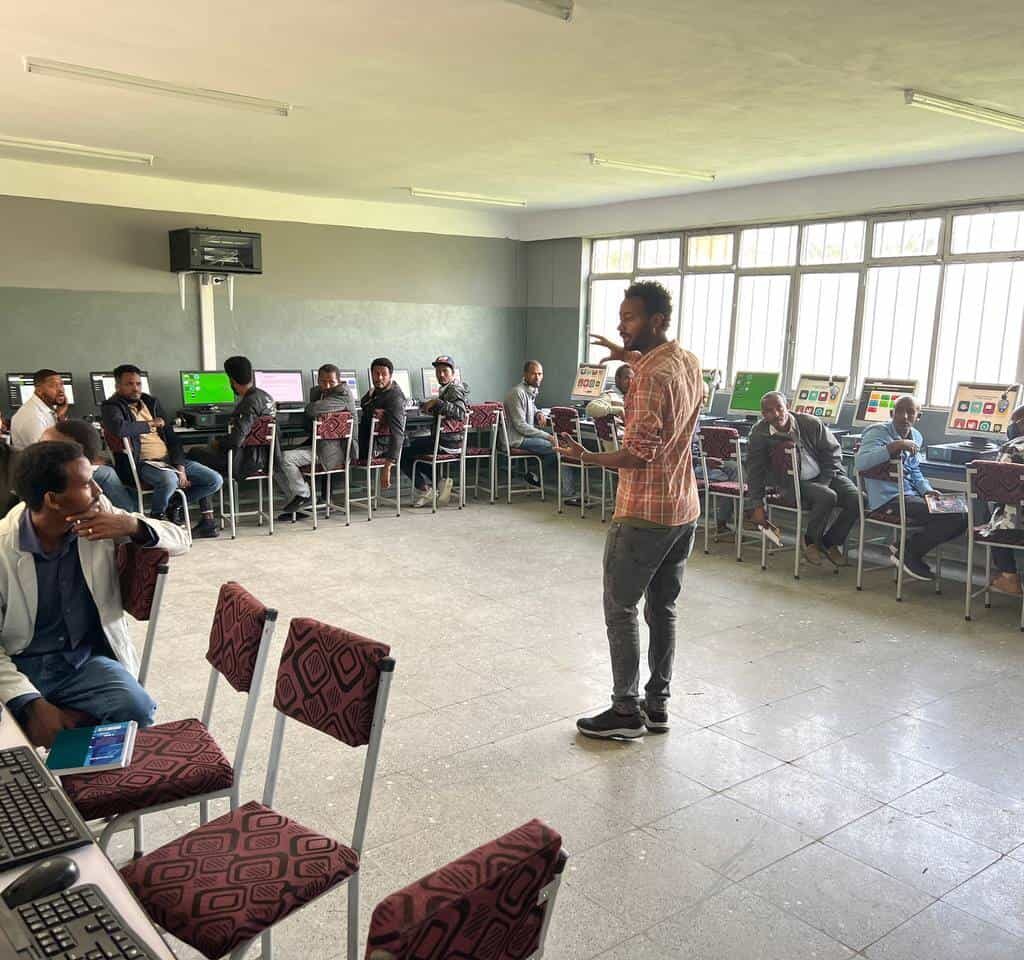
Sher High School in Ziway, Ethiopia, has received not one but two brand-new e-learning centres, thanks to generous funding from the Dutch Flower Foundation and Afriflora.
Afriflora/Sher Ethiopia grows, harvests, grades and packs roses at three farms, the largest of them on the shores of Lake Dembel just outside Ziway. Between 2.5 and 4 million roses are processed every day and transported to Europe for further distribution. This makes Afriflora/Sher Ethiopia the largest rose grower in the world and the biggest supplier of roses in Europe, as well as a major foreign currency earner for Ethiopia. Around half of the students at the Ziway Sher High School are children of Sher employees.
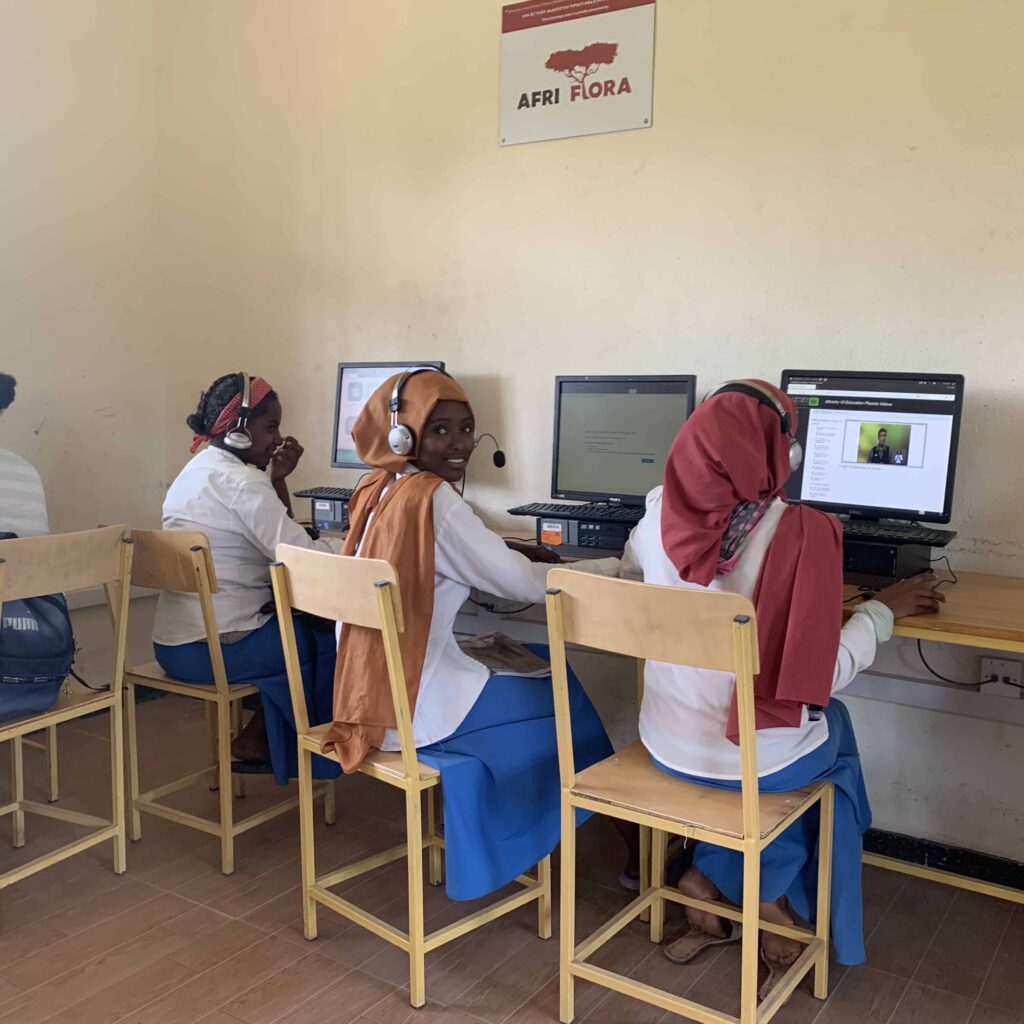
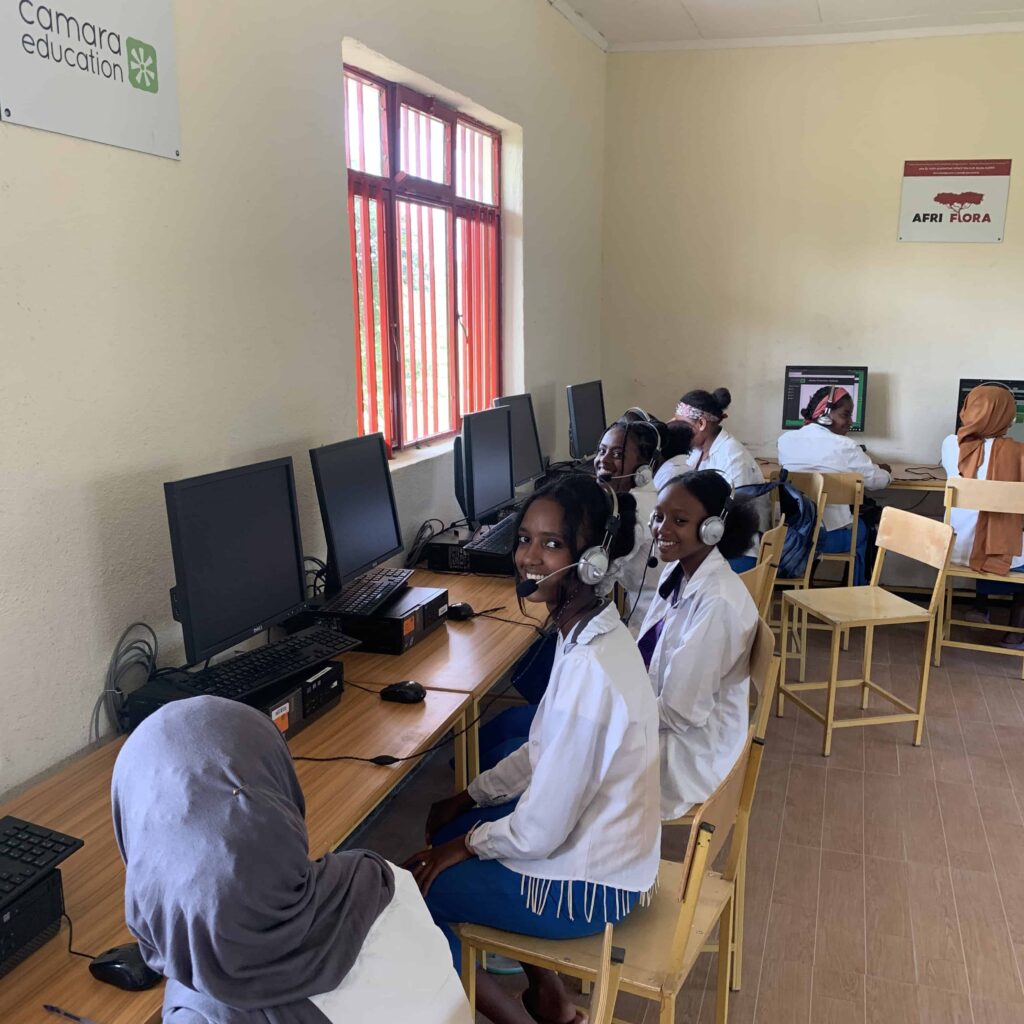
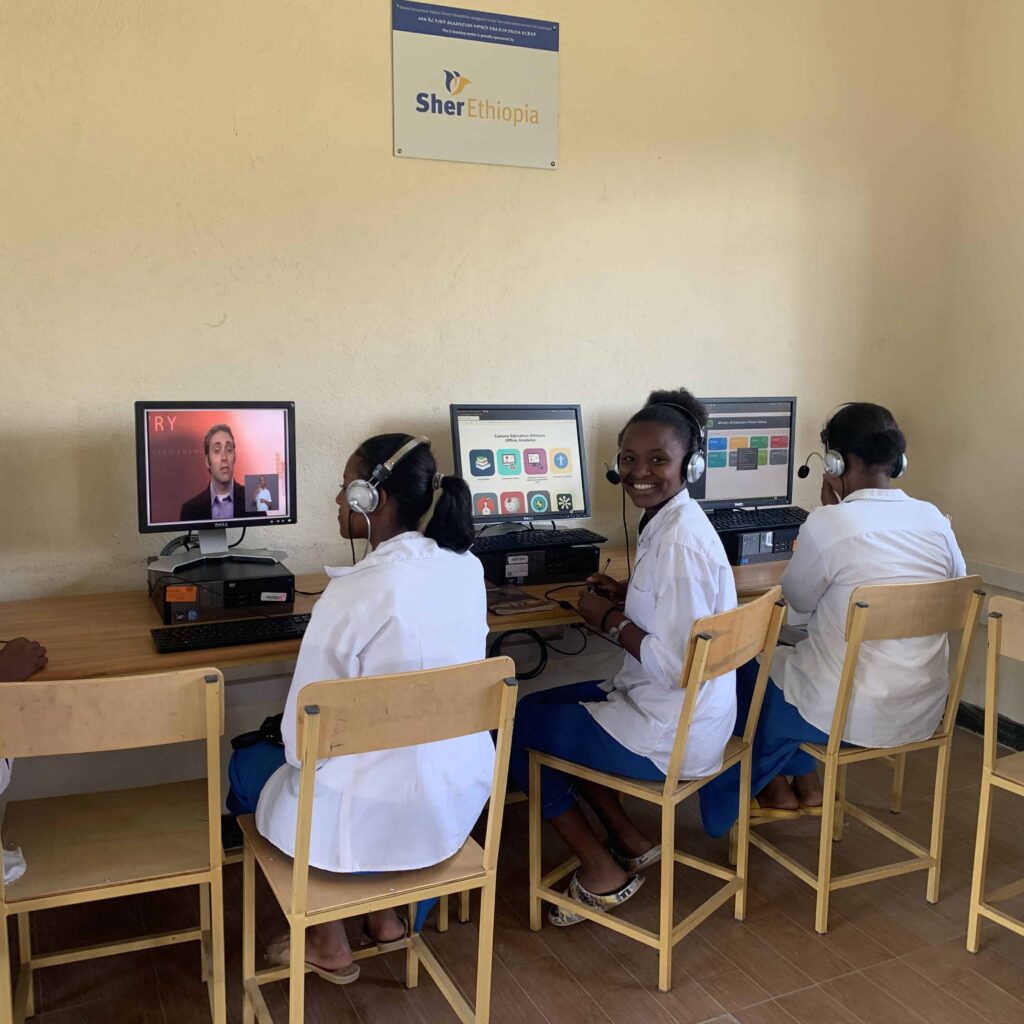
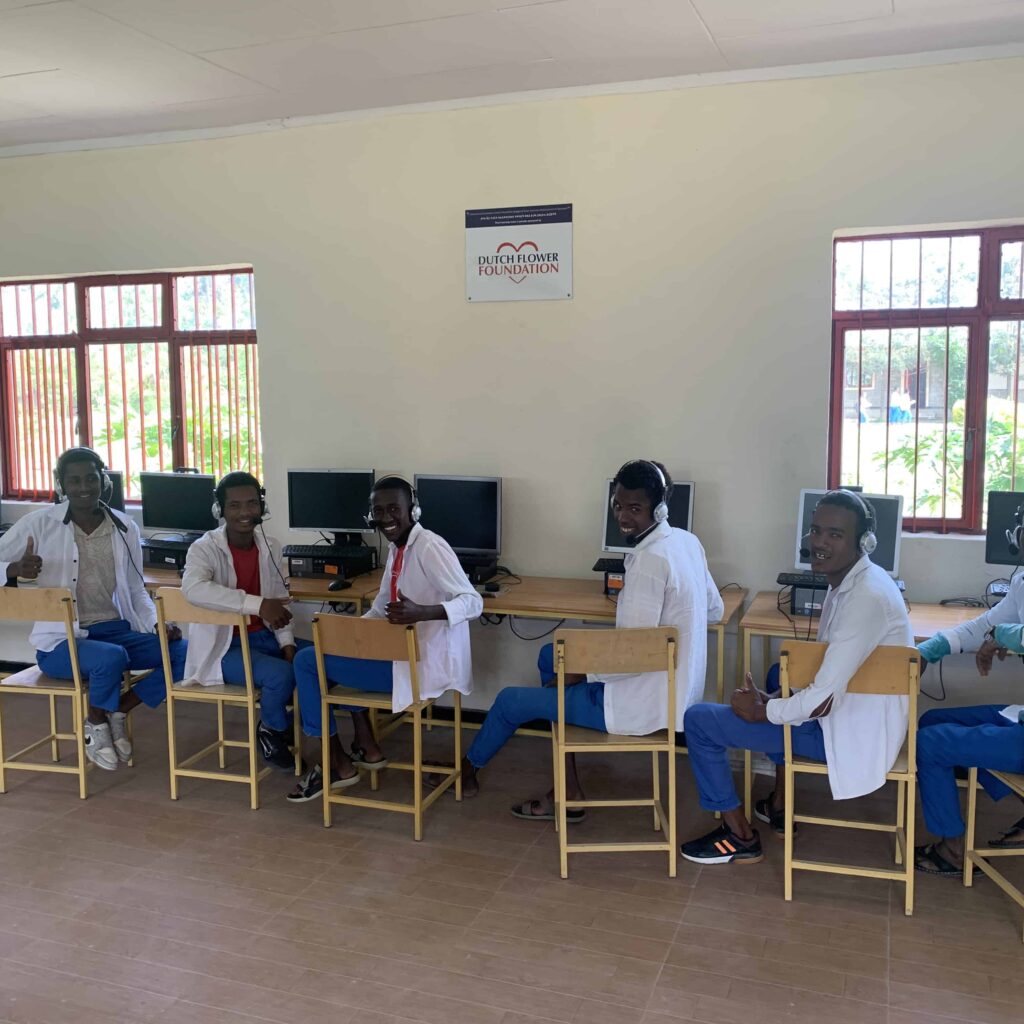
Camara installed 50 computers and two servers in the two centres, and our trainers spent a week training 26 teachers on how best to use the computers to deliver the curriculum and giving advice on basic maintenance. We’ll also provide ongoing support. Camara’s computers run on the Ubuntu open-source operating system. They are pre-loaded with a range of educational software, from simple games to specialized Camara Learning Studio resources for maths and science. All computers are also loaded with an offline version of Wikipedia, creating an extraordinary learning resource for schools with limited internet connections. And most important of all, the computers are installed with PDFs of Ministry of Education textbooks covering the entire school curriculum. Textbooks are in very short supply in many of Ethiopia’s 40,000 schools, so this alone is a crucial resource.
The Dutch Flower Foundation (DFF) aims to improve the living conditions and well-being of people in need and in particular children. They focus on countries where Dutch Flower Group (DFG) companies are active with an emphasis on connected community projects. Through the activities of DFF, DFG gives substance to its responsibility for the world in which we live.
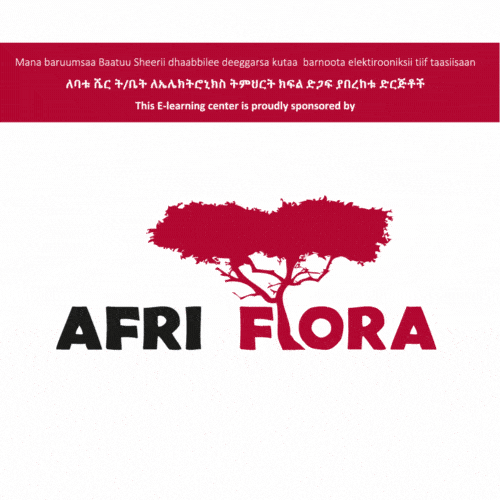
Hundreds of students will benefit from the new computers according to Sher School director Mr Negusse Aga: ‘Computer-skills are extremely important for our students. Sher schools have an excellent reputation in Ethiopia. Almost all the students qualify to attend universities. New computers enable us to uphold our reputation and open the digital world to our students. On behalf of the students and teachers we would like to sincerely thank DFF and Camara for their highly appreciated contribution in this project.’
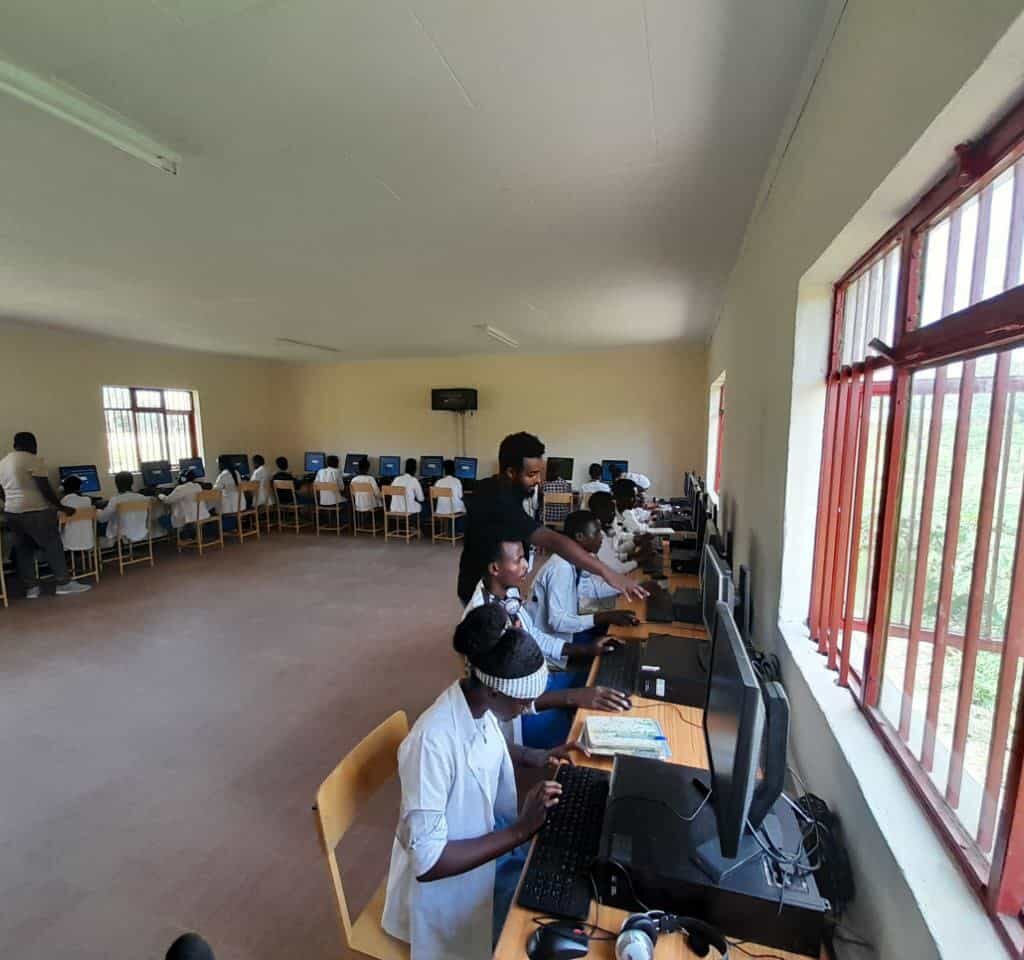
Meyram sits with her friends in the bustling e-learning lab in Semera Girls’ Boarding School. Outside the morning temperature is reaching 40 degrees, but inside the lab the air is cooled by fans and air conditioning. To protect the computers from dust all the students leave their shoes outside.
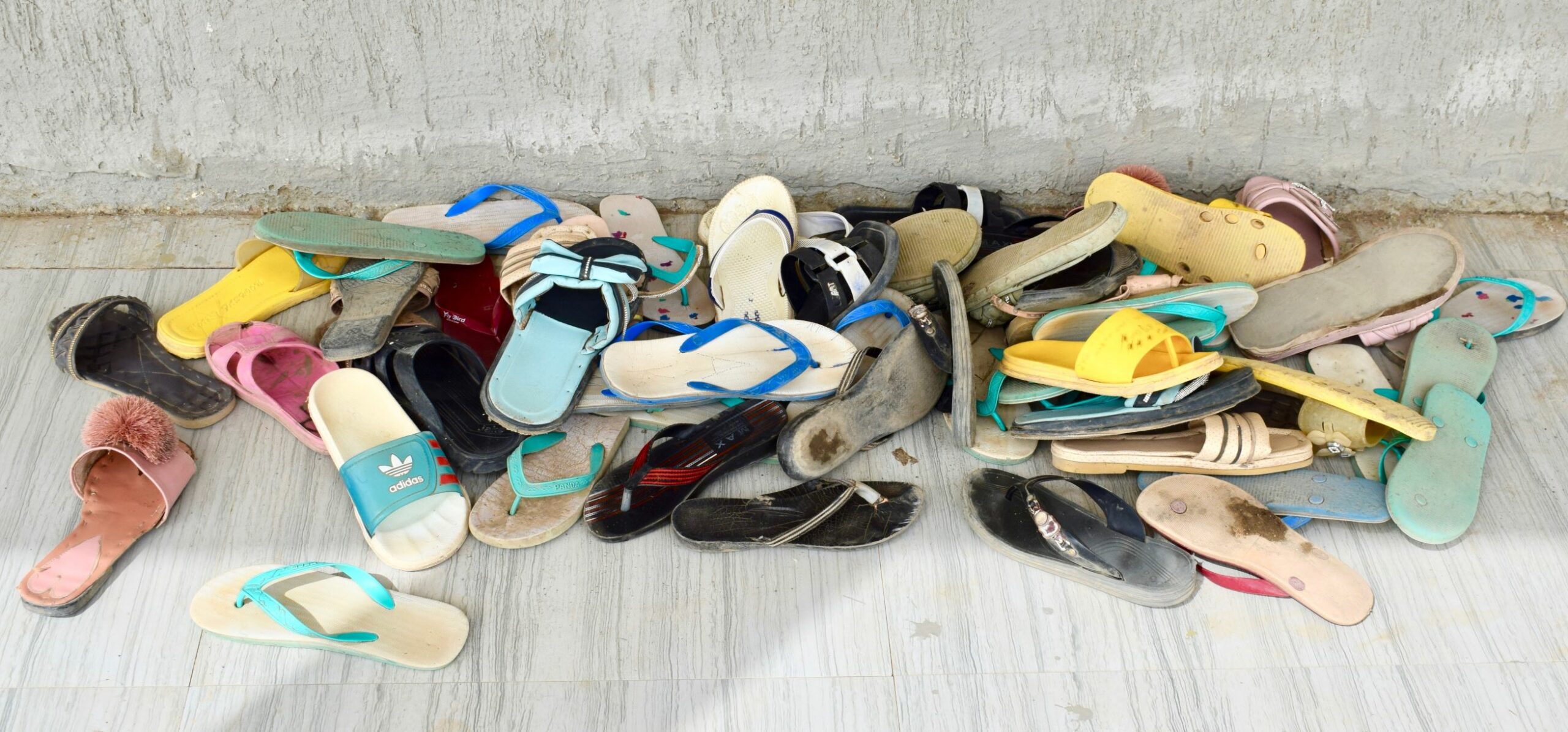
The lab is part of a project in which Camara Education Ethiopia has been collaborating with British Council Ethiopia. Computers were funded by the Ethiopian Ministry of Education, while Camara Education supplied the hardware, networking and technical support, and the British Council provided educational resources.
“I started using the computers one month ago”. Meyram explained. “It’s difficult to get hard copies of books so the computers make it easy to find the relevant content. The teachers have the real books, but we don’t.”
Not only has the e-learning lab provided students with textbooks, but it also helps understanding. Meyram finds that “the videos on the computers help me a lot.” If she doesn’t understand something her teacher is trying to explain, she can come to the lab after class and learn more.
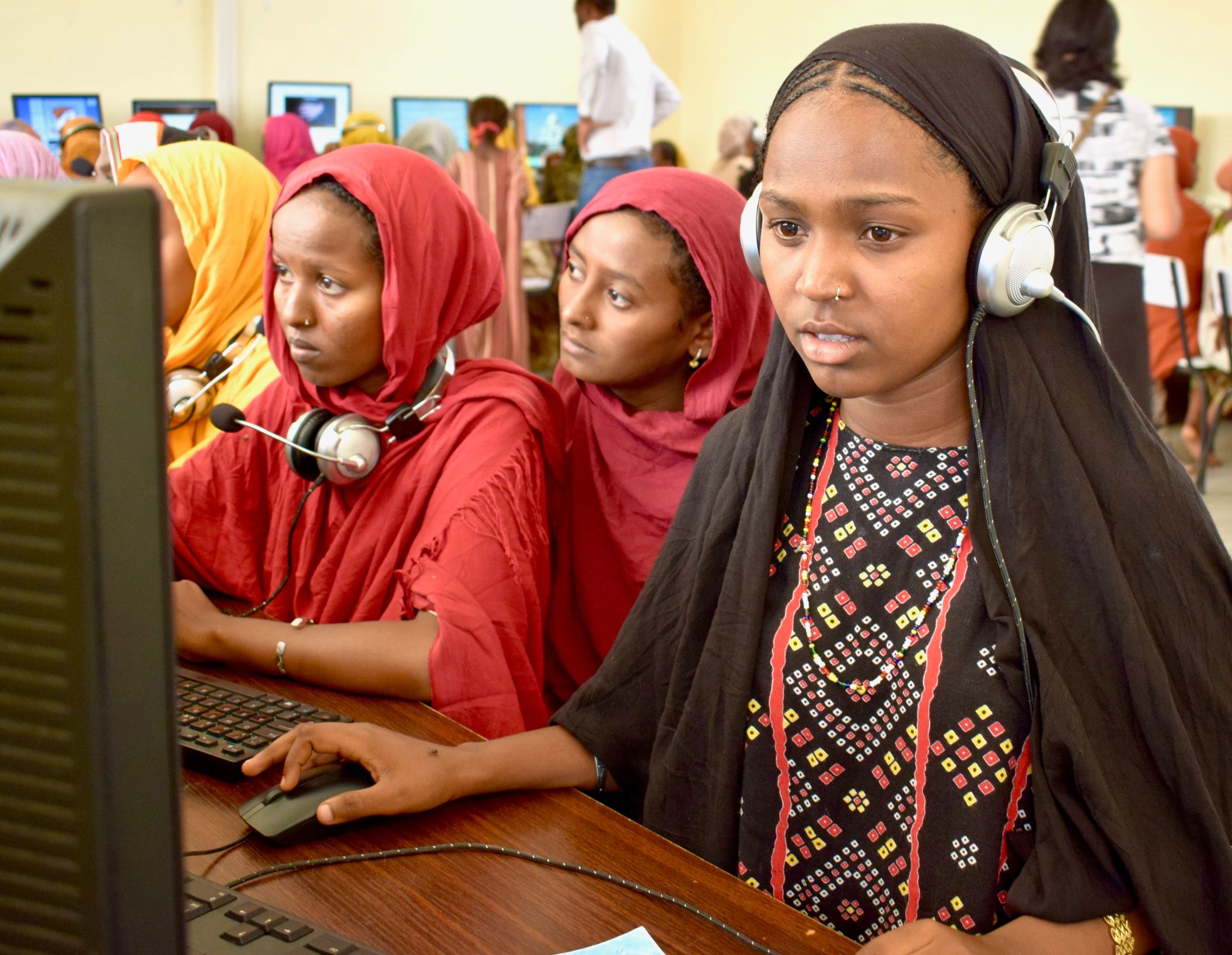
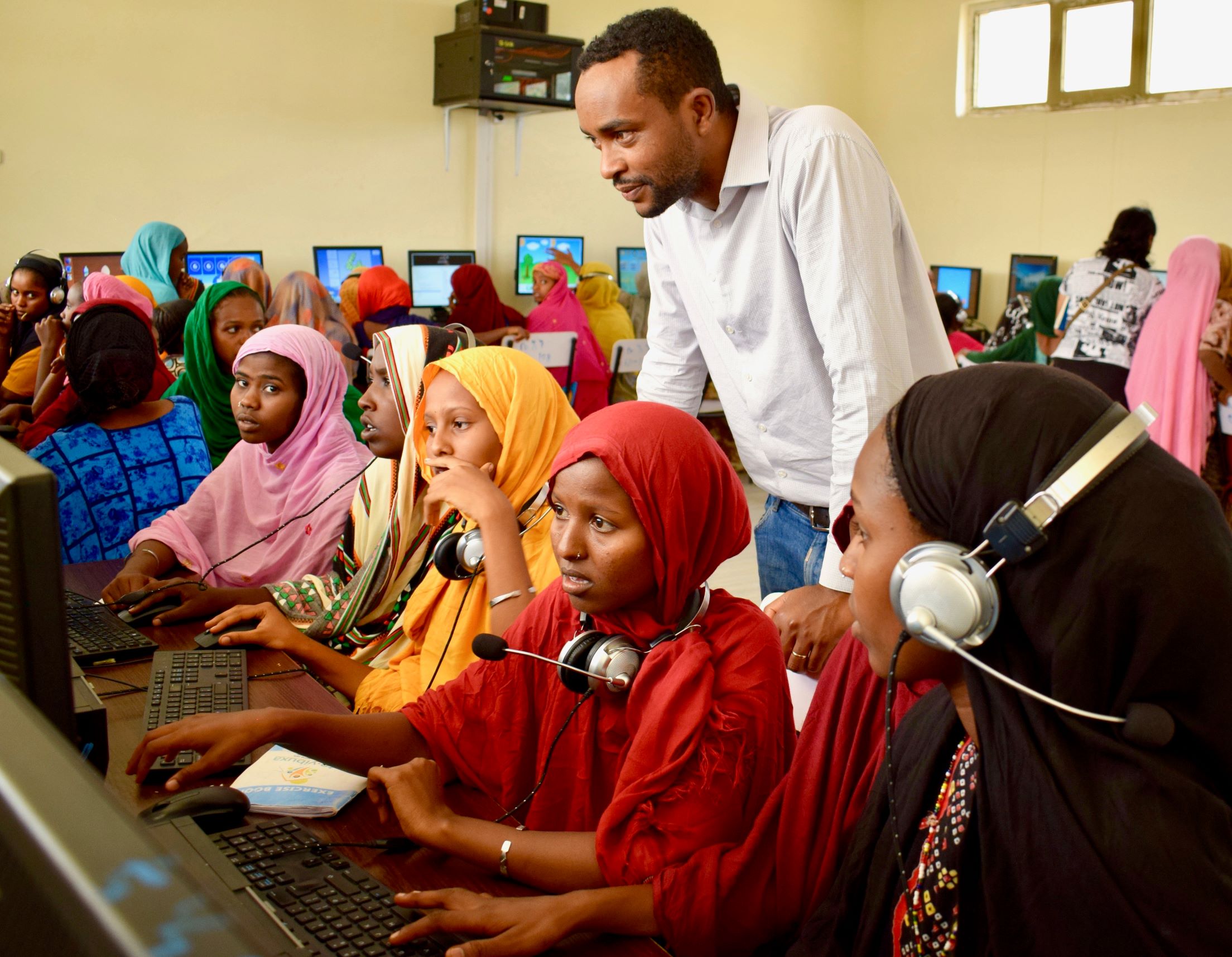
Meyram uses the lab every day for an hour or so. Her ICT teacher is always there to help (she was trained by Camara Education). Meyram feels “excited to learn new things so I listen carefully to my e-learning lab teacher. I am proud of what I have learnt so far.”
As an ICT club member Meyram has the responsibility to show her friends how to use the computers. “I feel well trained and this makes me happy to share my knowledge and teach my friends”, she explained. Next she aims to teach her family too. Though she lives in the boarding school, every time she talks to her family she tells them about her e-learning, “My family know I am learning how to use computers and they are proud of me. In the future I want to share my knowledge with them too.”
Meyram has high ambitions for her future and uses e-learning to help her journey towards achieving them. “Using these computers, especially experimenting on Wikipedia, helps me to know more about the outside world and I am exploring more. This helps me get different information about other countries.“
“Because, when I grow up, I want to be the prime minister of Ethiopia.”
The interview with Meyram was conducted in Amharic and has been translated into English.
Camara Education Ethiopia has been collaborating with the British Council in Ethiopia on a project involving six secondary schools in the Afar region and fourteen in Amhara. Both areas are in northern Ethiopia and were impacted by the recent conflict there.
In each school the project set up a fully functioning e-Learning centre designed specifically for the school’s individual climate and context. Computers were funded by the Ethiopian Ministry of Education, while Camara Education supplied the hardware, networking and technical support, ensuring that equipment was protected from power surges, heat and dust. The schools provided the rooms, furniture and their own dedication, committing to maintain the labs in the long term.
To support the use of the centres, the British Council and Camara Education provided initial and follow-up hardware support and software training. Each computer is loaded with educational resources and programmes working both on- and off-line. As well as British Council materials, these include resources from the Ministry of Education and Camara Education Ethiopia.
The centres aim to build skills and confidence specifically for female students. Gender and girls club members will be prioritised for using the labs and take on the responsibility to teach their peers. Two students per club will lead the training, which will cascade across all the students and staff at the school. This prioritisation aims to improve achievement levels for girls and gender club members, giving them status in the school and society and raising their ability, capacity and motivation to learn.
In Afar, training for teachers, club leaders, directors and education officers took place in the new e-Learning centre at Semera Girls’ Boarding School. The school is situated on the edge of Semera city, almost 600km northeast of Addis Ababa. The e-Learning centre is a clean, well-organized room at the heart of the school, now lined with desktop computers, with fans to cool them in Afar’s hot climate.
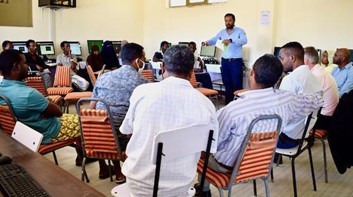
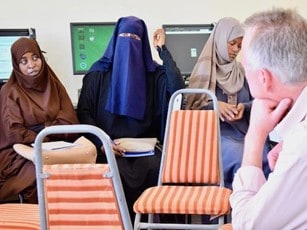
Alem Tsehai, who works in another school in the project, explained the need for these e-Learning centres, “There are lots of challenges in my school”, she said, “there are only a few books and resources. This is a big opportunity to use this training and resources to improve my students’ learning outcomes. We used to have no computers in my school. Now Camara and the Ministry of Education have supplied more than 40”.
Another participant at the training talked about how labs can motivate teachers’ support for female students, “After this training I will have more resources for girls’ education and I will focus on girls’ education”.
The training considered how to ensure this initiative is accepted and promoted across communities. Engaging the community will increase the impact on girls’ education.
As one of the teachers put it: “We need to work with religious leaders. We need to encourage them to send their girls to school. Once in school we need to support girls to engage more with school and with technology.”
Once back at their schools the teachers’ work must be two-fold, as one participant explained, “I will cascade this training for other teachers when I return to my school and focus on girls’ education”. Another recognised the project aims as sitting firmly within their own hopes for education: “If I was made the Minister of Education I would raise teachers’ professional competency. I would implement policies and improve learning outcomes.”
